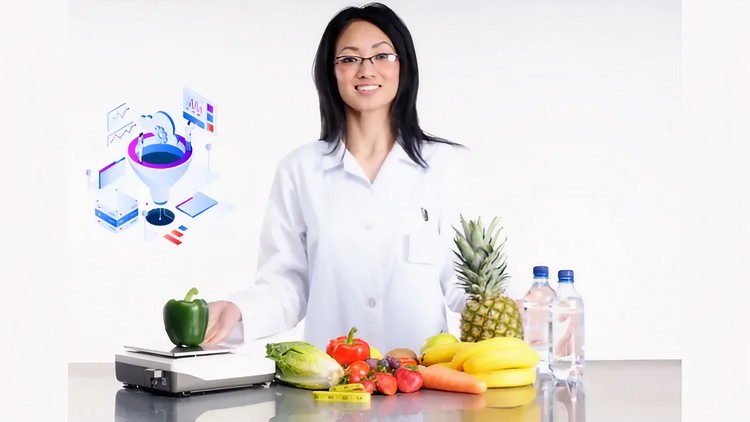
Food Science and Processing Technology
What you will learn
Learning experience from experienced and certified Trainers.
Hands-on Projects to practice various concepts & tools, evaluated by our lead trainer.
In learning of Food Science and Processing Technology , we are learning the secrets of Food. With this knowledge come discoveries in Food.
Life Time access of recorded lecture from experienced and certified Trainers.
Add-On Information:
Note➛ Make sure your 𝐔𝐝𝐞𝐦𝐲 cart has only this course you're going to enroll it now, Remove all other courses from the 𝐔𝐝𝐞𝐦𝐲 cart before Enrolling!
- Unravel Food’s Core Science: Delve into the fundamental chemical, biological, and physical properties of food, understanding ingredient interactions and transformations at a molecular level.
- Master Processing Technologies: Explore diverse methods, from traditional preservation to cutting-edge techniques like high-pressure processing, ensuring food safety and extending shelf life.
- Ensure Food Safety & Quality: Learn critical principles of microbiology, sanitation, and Hazard Analysis Critical Control Points (HACCP) to establish comprehensive quality control measures for safe, wholesome products.
- Innovate New Food Products: Gain expertise to develop novel food items, improve existing formulations, and tailor products to meet specific nutritional, sensory, and market demands (e.g., functional foods, plant-based alternatives).
- Optimize Packaging & Storage: Understand packaging science and design effective strategies to protect product integrity, extend shelf life, and minimize waste throughout the supply chain.
- Contribute to Food Sustainability: Investigate methods to reduce food waste, optimize resource utilization, enhance supply chain efficiency, and develop environmentally friendly processing practices.
- Analyze Nutritional Impact & Fortification: Grasp how processing affects nutrient content and discover strategies for nutrient preservation, fortification, and creating health-benefiting foods.
- Navigate Global Food Regulations: Become proficient in national and international food laws, labeling requirements, and industry certifications crucial for compliance and market access.
- Develop Sensory Evaluation Acumen: Learn systematic approaches to assess food quality (taste, aroma, texture, appearance) and translate consumer preferences into actionable product development insights.
- Explore Food Engineering: Understand the design and operation of industrial food processing equipment, from heat exchangers and evaporators to extruders and bioreactors, optimizing production efficiency.
- PROS:
- High Demand Career Paths: Unlock diverse opportunities in research & development, quality assurance, production management, and regulatory affairs across the thriving global food industry.
- Significant Societal Impact: Directly contribute to public health by ensuring food safety, developing nutritious products, and addressing global food security challenges.
- Practical, Industry-Ready Skills: Gain a unique blend of scientific knowledge, technical proficiency, and problem-solving abilities immediately applicable to real-world challenges.
- CONS:
- Interdisciplinary Complexity: The course demands mastery across multiple scientific and engineering disciplines, presenting a challenging but rewarding learning curve.
English
language